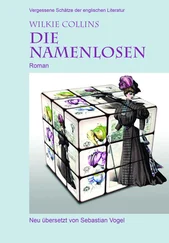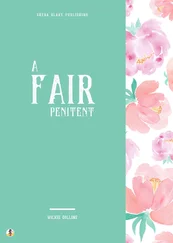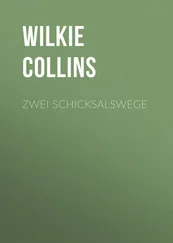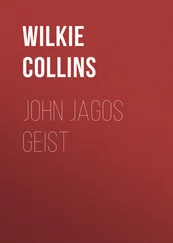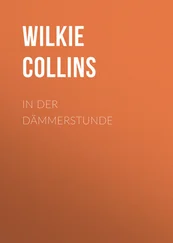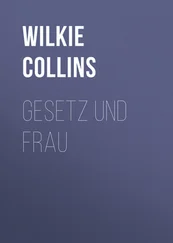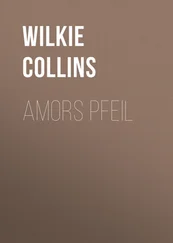Wilkie Collins - Little Novels
Здесь есть возможность читать онлайн «Wilkie Collins - Little Novels» весь текст электронной книги совершенно бесплатно (целиком полную версию без сокращений). В некоторых случаях можно слушать аудио, скачать через торрент в формате fb2 и присутствует краткое содержание. Год выпуска: 1999, Жанр: Классическая проза, на английском языке. Описание произведения, (предисловие) а так же отзывы посетителей доступны на портале библиотеки ЛибКат.
- Название:Little Novels
- Автор:
- Жанр:
- Год:1999
- ISBN:нет данных
- Рейтинг книги:5 / 5. Голосов: 1
-
Избранное:Добавить в избранное
- Отзывы:
-
Ваша оценка:
- 100
- 1
- 2
- 3
- 4
- 5
Little Novels: краткое содержание, описание и аннотация
Предлагаем к чтению аннотацию, описание, краткое содержание или предисловие (зависит от того, что написал сам автор книги «Little Novels»). Если вы не нашли необходимую информацию о книге — напишите в комментариях, мы постараемся отыскать её.
Little Novels — читать онлайн бесплатно полную книгу (весь текст) целиком
Ниже представлен текст книги, разбитый по страницам. Система сохранения места последней прочитанной страницы, позволяет с удобством читать онлайн бесплатно книгу «Little Novels», без необходимости каждый раз заново искать на чём Вы остановились. Поставьте закладку, и сможете в любой момент перейти на страницу, на которой закончили чтение.
Интервал:
Закладка:
Lady Howel’s sympathies, strongly excited, appeared to have led her to a conclusion which she was not willing to communicate to her husband. She asked him, rather abruptly, if he would leave it to her to find Mrs. Evelin. “I promise,” she added, “to tell you what I am thinking of, when I come back.”
In two minutes more she was ready to go out, and had hurriedly left the house.
V.
AFTER a long absence Lady Howel returned, accompanied by Dick. His face and manner betrayed unusual agitation; Beaucourt noticed it.
“I may well be excited,” Dick declared, “after what I have heard, and after what we have done. Lady Howel, yours is the brain that thinks to some purpose. Make our report—I wait for you.”
But my lady preferred waiting for Dick. He consented to speak first, for the thoroughly characteristic reason that he could “get over it in no time.”
“I shall try the old division,” he said, “into First, Second, and Third. Don’t be afraid; I am not going to preach—quite the contrary; I am going to be quick about it. First, then, Mrs. Evelin has decided, under sound advice, to go to New Zealand. Second, I have telegraphed to her relations at the other end of the world to tell them that she is coming. Third, and last, Farleigh & Halford have sent to the office, and secured a berth for her in the next ship that sails—date the day after to-morrow. Done in half a minute. Now, Lady Howel!”
“I will begin and end in half a minute too,” she said, “if I can. First,” she continued, turning to her husband, “I found Mrs. Evelin at your friend’s house. She kindly let me say all that I could say for the relief of my poor heart. Secondly—”
She hesitated, smiled uneasily, and came to a full stop.
“I can’t do it, Howel,” she confessed; “I speak to you as usual, or I can never get on. Saying many things in few words—if the ladies who assert our rights will forgive me for confessing it—is an accomplishment in which we are completely beaten by the men. You must have thought me rude, my dear, for leaving you very abruptly, without a word of explanation. The truth is, I had an idea in my head, and I kept it to myself (old people are proverbially cautious, you know) till I had first found out whether it was worth mentioning. When you were speaking of the wretched creature who had claimed Mrs. Evelin’s husband as her own, you said she was an inveterate drunkard. A woman in that state of degradation is capable, as I persist in thinking, of any wickedness. I suppose this put it into my head to doubt her—no; I mean, to wonder whether Mr. Evelin—do you know that she keeps her husband’s name by his own entreaty addressed to her on his deathbed?—oh, I am losing myself in a crowd of words of my own collecting! Say the rest of it for me, Sir Richard!”
“No, Lady Howel. Not unless you call me ‘Dick.’”
“Then say it for me—Dick.”
“No, not yet, on reflection. Dick is too short, say ‘Dear Dick.’”
“Dear Dick—there!”
“Thank you, my lady. Now we had better remember that your husband is present.” He turned to Beaucourt. “Lady Howel had the idea,” he proceeded, “which ought to have presented itself to you and to me. It was a serious misfortune (as she thought) that Mr. Evelin’s sufferings in his last illness, and his wife’s anxiety while she was nursing him, had left them unfit to act in their own defense. They might otherwise not have submitted to the drunken wretch’s claim, without first making sure that she had a right to advance it. Taking her character into due consideration, are we quite certain that she was herself free to marry, when Mr. Evelin unfortunately made her his wife? To that serious question we now mean to find an answer. With Mrs. Evelin’s knowledge of the affair to help us, we have discovered the woman’s address, to begin with. She keeps a small tobacconist’s shop at the town of Grailey in the north of England. The rest is in the hands of my lawyer. If we make the discovery that we all hope for, we have your wife to thank for it.” He paused, and looked at his watch. “I’ve got an appointment at the club. The committee will blackball the best fellow that ever lived if I don’t go and stop them. Good-by.”
The last day of Mrs. Evelin’s sojourn in England was memorable in more ways than one.
On the first occasion in Beaucourt’s experience of his married life, his wife wrote to him instead of speaking to him, although they were both in the house at the time. It was a little note only containing these words: “I thought you would like to say good-by to Mrs. Evelin. I have told her to expect you in the library, and I will take care that you are not disturbed.”
Waiting at the window of her sitting-room, on the upper floor, Lady Howel perceived that the delicate generosity of her conduct had been gratefully felt. The interview in the library barely lasted for five minutes. She saw Mrs. Evelin leave the house with her veil down. Immediately afterward, Beaucourt ascended to his wife’s room to thank her. Carefully as he had endeavored to hide them, the traces of tears in his eyes told her how cruelly the parting scene had tried him. It was a bitter moment for his admirable wife. “Do you wish me dead?” she asked with sad self-possession. “Live,” he said, “and live happily, if you wish to make me happy too.” He drew her to him and kissed her forehead. Lady Howel had her reward.
Part III.
NEWS FROM THE COLONY.
VI.
FURNISHED with elaborate instructions to guide him, which included golden materials for bribery, a young Jew holding the place of third clerk in the office of Dick’s lawyer was sent to the town of Grailey to make discoveries. In the matter of successfully instituting private inquiries, he was justly considered to be a match for any two Christians who might try to put obstacles in his way. His name was Moses Jackling.
Entering the cigar-shop, the Jew discovered that he had presented himself at a critical moment.
A girl and a man were standing behind the counter. The girl looked like a maid-of-all-work: she was rubbing the tears out of her eyes with a big red fist. The man, smart in manner and shabby in dress, received the stranger with a peremptory eagerness to do business. “Now, then! what for you?” Jackling bought the worst cigar he had ever smoked, in the course of an enormous experience of bad tobacco, and tried a few questions with this result. The girl had lost her place; the man was in “possession”; and the stock and furniture had been seized for debt. Jackling thereupon assumed the character of a creditor, and ask to speak with the mistress.
“She’s too ill to see you, sir,” the girl said.
“Tell the truth, you fool,” cried the man in possession. He led the way to a door with a glass in the upper part of it, which opened into a parlor behind the shop. As soon as his back was turned, Jackling whispered to the maid, “When I go, slip out after me; I’ve got something for you.” The man lifted the curtain over the glass. “Look through,” he said, “and see what’s the matter with her for yourself.”
Jackling discovered the mistress flat on her back on the floor, helplessly drunk. That was enough for the clerk—so far. He took leave of the man in possession, with the one joke which never wears out in the estimation of Englishmen; the joke that foresees the drinker’s headache in the morning. In a minute or two more the girl showed herself, carrying an empty jug. She had been sent for the man’s beer, and she was expected back directly. Jackling, having first overwhelmed her by a present of five shillings, proposed another appointment in the evening. The maid promised to be at the place of meeting; and in memory of the five shillings she kept her word.
Читать дальшеИнтервал:
Закладка:
Похожие книги на «Little Novels»
Представляем Вашему вниманию похожие книги на «Little Novels» списком для выбора. Мы отобрали схожую по названию и смыслу литературу в надежде предоставить читателям больше вариантов отыскать новые, интересные, ещё непрочитанные произведения.
Обсуждение, отзывы о книге «Little Novels» и просто собственные мнения читателей. Оставьте ваши комментарии, напишите, что Вы думаете о произведении, его смысле или главных героях. Укажите что конкретно понравилось, а что нет, и почему Вы так считаете.


